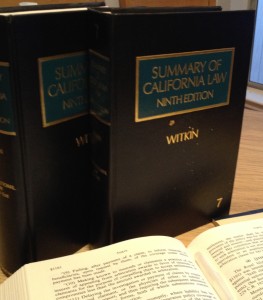Factors Governing Landlord Liability for Injuries to Tenants
THE LAW DOES NOT IMPOSE “STRICT LIABILITY” ON LANDLORDS
“Strict liability” is a legal doctrine holding certain people (or companies) liable for damages caused by defective conditions or products. While many forms of injury are covered by strict liability laws, the law does not impose strict liability on Landlords for all injuries suffered by tenants and others while on the landlord’s property.
Instead, the law imposes a duty–and liability–on the landlord only in certain types of cases. Which ones are governed by specific laws and also by a set of factors courts consider to determine whether the landlord owed the tenant (or other injured party) a duty to prevent the harm or repair the condition which resulted in the injury.
FACTORS USED TO EVALUATE THE EXISTENCE OF A LANDLORD’S DUTY
When an injured plaintiff brings an action against a landlord, the court must first determine whether the landlord owed the tenant some duty of care with regard to the injury or the condition which caused or contributed to the harm. The court will evaluate the existence of the landlord’s duty using some or all of the following factors”
1. The existence of a law (a statute) creating a special duty in the landlord.
2. Whether the injury to the plaintiff was foreseeable and, if so, how foreseeable it was.
3. The availability and cost of insurance against the relevant risk or injury–and whether or not people in the landlord’s position commonly carry that insurance.
4. The severity of the plaintiff’s injuries.
5. The connection between the landlord’s conduct (or failure to act) and the plaintiff’s injury.
6. The degree of control the landlord exercised over the premises and the condition which caused the harm.
7. The burden–to the specific landlord and to the larger community–of imposing a duty and/or liability on the landlord in such cases.
8. The “moral blame” (if any) surrounding the landlord’s conduct.
9. Whether or not a public policy exists (or should exist) requiring landlords to act in such situations in order to prevent similar future injuries or damages.
If, after analyzing the facts and circumstances of the relevant case, cause, and injury, a court decides the landlord did have a duty to the tenant, or to take some action to help prevent the harm, the plaintiff must still prove that the landlord breached the duty and that the breach was the legal cause of the plaintiff’s injuries or damages.
***
DISCLAIMER: This article is intended for informational purposes only, does not constitute legal advice to any person or entity, and does not create an attorney-client relationship with any person or entity. Landlord-tenant law, including premises liability, is a complex legal topic, and no single article can provide complete or comprehensive coverage or information about this or any other legal topic or issue. Your personal liability may differ, based on your individual facts and circumstances. If you believe you have a legal claim or issue, or wish to know more about your individual rights, consult an experienced attorney without delay.















